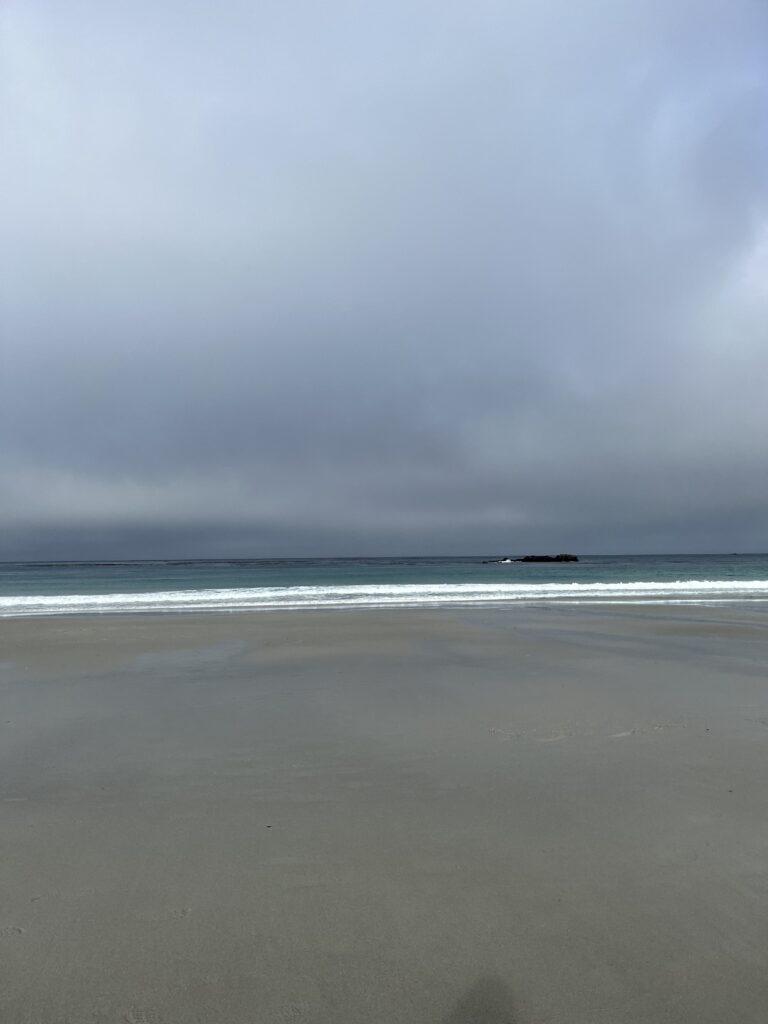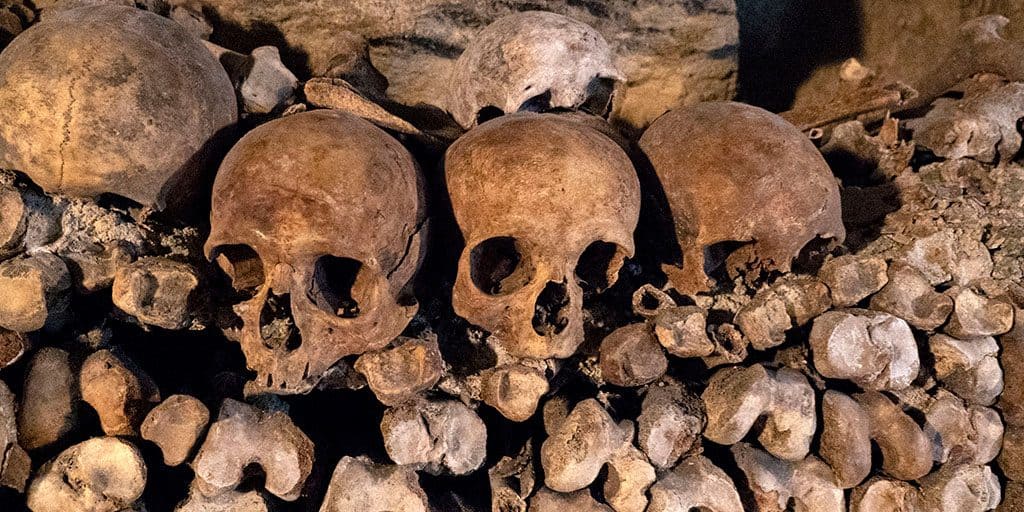An old man getting acupuncture treatment reflects on his life.
Footsteps in the Sand
The old man walked through the parking lot and approached the entrance to the medical building. As he neared the automatic doors he caught his reflection in the glass. I look like a feeble old man.
Inside, in an acupuncture exam room, he fumbled trying to tie the hospital gown from behind with his numb fingers. He stood barefoot on the cold vinyl floor in his underwear as an acupuncturist knocked and entered. The old man bunched the back of his gown with one hand and sat down. She asked how he was feeling. He told her the peripheral neuropathy in his feet and hands had continued. She gestured for him to get up on the treatment table. Again he bunched his robe from behind and stretched out for his treatment.
The old man lay still as the acupuncturist stuck needles in his bare feet, his arms and legs, several in his left ear lobe (to reset his body, she explained), and a single one smack in the center of his forehead. She moved a heat lamp near his feet, dimmed the lights, said, “Relax,” and left the room.
The old man closed his eyes to focus on his breathing. He let his mind drift. A memory floated in, a memory of the first time his feet felt sand and salt water. He was only six when his parents rented a cottage for a month on Rockaway Beach in New York. They left the sweltering heat of their fourth floor walkup apartment on the Upper West Side for the freedom and fresh air of the ocean. He and his brothers toughened their feet as they ran barefoot every day from dawn till bedtime.
He wiggled his toes, recalled the hot sand squeezing between his toes and turning to cool mud as the gentle surf swirled underfoot. He and his family would sit on a sandy blanket eating bologna sandwiches for lunch. Bells from the beachside Stella Maris Catholic High School chimed every day at noon. Any Catholics on the beach at the time stood to recite a prayer to Mary. He would squirm his feet deep into the sand in embarrassment as his mother made the family stand to join in the prayer.
His family moved to a small bayside town a year later. The old man recalled small sand beaches, more trips to the ocean, his rowboat that took him to isolated shorelines. He waded barefoot along beaches littered with tiny black snails. He poled his boat through the marshes, his feet standing in a few inches of cool water in the bottom of his boat.
Lying on the table, the old man couldn’t feel the needles in his feet. His mind wandered more as he recalled the wide open sands of Jones Beach. Hot sand. Long walks barefoot from the parking lots to the water’s edge, his feet searing on the blazing asphalt. He would go out of his way to step in a puddle to relieve the burn. Then, hours tossing a football with family, years later with friends. Running awkwardly in the sand. Always the first week out of school for summer. Working on the first tan, using a bottle of baby oil with a few drops of iodine in it.
Years later his feet discovered the long stretches of white sand on Fire Island. The best beach in the world. He walked barefoot on the Island’s trails and plank paths, buried his feet in sand that cradled and warmed. He ran barefoot for miles in early morning at water’s edge, first East into the early sun, then back along the hard wet sand to a well-earned bacon and egg breakfast.
The old man felt himself half-dozing on the treatment table. His mind opened on the pounding night surf on White Horse Beach in Plymouth, Massachusetts. Walking where the cold wet sand told him ‘the ocean rules here’. Only the sensation of his feet vibrating to the pounding, crashing surf.
More years, more beach memories flashing in his mind. Cape Cod. Chatham and Provincetown. Wide sand beaches exposed at low water, rippled by tide and wind, making his feet sore walking over the ripples.
Now, images of Jetties Beach on Nantucket Island. Barefoot as always, his feet shoved deep into the warm sand. He remembered sitting on the sand writing in his journal. A quiet beach, few surfers, mostly families and kids. He wrote of waves lapping and foaming on the shore, tumbling the pebbles along the water’s edge. Gulls screeing in the distance. The Island ferry passing the Brant Point lighthouse, brimming with tourists.
His memories carried him forward to California. To Malibu. Dipping his toes in water shared with surfers, celebrities, Angelenos escaping the inland heat. He would sit under the Malibu Pier, watching the surf break through the pilings, inching up to his feet. Looking out at the beachgoers, the surfers, kids with their boogie boards.
The old man recalled a recent early morning walk on the beach in Carmel. Tide out, vast flat expanses of dark, wet sand underfoot. Dogs ran freely, splashing through soaked sand and outgoing tide. Cool before the sun broke through. Easy on the feet. The hardest thing – climbing back up to the road in soft sand, leaving him breathless. Clint Eastwood and Doris Day may have walked those very sands. And not too many miles away, John Steinbeck worked and wrote in Monterey. Who knows, the old man thought. My feet may have touched grains of sand that were once between the toes of these celebrities.
The acupuncturist re-entered the room, bringing the old man back into the moment. She raised the lights, removed the needles. In a soft voice, “How do you feel?”
“Maybe better. Hard to tell.”
“Nerve damage takes time to heal,” she said. “Only about one millimeter a day. In some cases, it never heals.”
The old man sat up, swung his legs off the table, grasping the back of his gown again. He shook his head. “You know, days like today, I feel like a doddering old man.”
“You’re not an old man.” She pointed at him. “You’re a survivor.”
He smiled. “I like that.” He gestured towards his feet. “These feet have left a lot of footsteps in the sand.”
***


Recent Comments